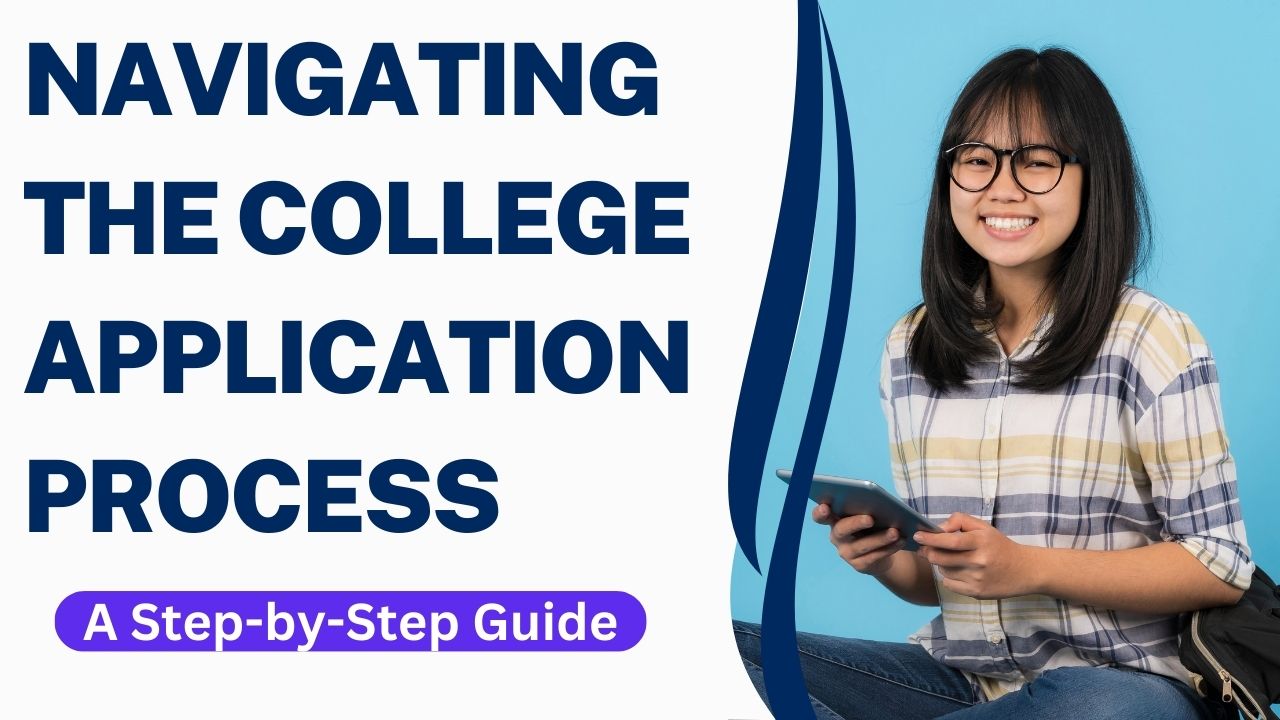Navigating the College Application Process can be a daunting journey, but with the right guidance and a well-structured plan, it can also be an exciting and fulfilling experience. In this step-by-step guide, we will walk you through the essential stages of the college application process, from preparation to submission.
Preparing Early
The Importance of Starting Early
The college application process can be overwhelming, and that’s precisely why starting early is crucial. Early preparation allows you to research your options, complete necessary tests, and gather all required documents without feeling rushed.
Creating a Timeline
To stay on track, create a timeline that outlines critical milestones in the application process. This will help you manage your time effectively and reduce last-minute stress.
Identifying Your Goals
Start by identifying your academic and personal goals. What do you want to study, and where? Prioritizing your aspirations will help you narrow down your college choices.
Researching Colleges
Choosing the Right College
Selecting the right college involves considering factors like location, size, and available programs. Research various colleges and universities to find the ones that align with your goals and preferences.
Exploring College Websites
Make the most of college websites to learn about admission requirements, campus life, and available scholarships. Virtual tours and online information sessions are also excellent resources.
Gathering Documents
Essential Application Materials
To create a successful application, you’ll need essential documents like academic records, transcripts, and standardized test scores.
Letters of Recommendation
Requesting letters of recommendation from teachers and mentors is a critical step. Ensure you provide them with all the necessary information, and remember to follow up with thank you notes.
Financial Planning
Understanding the Cost
College can be expensive, so it’s essential to understand the costs involved. Explore scholarship opportunities, grants, and financial aid options to make education more affordable.
Creating a Budget
Don’t forget to create a budget for application fees, test fees, and other related expenses. Financial planning is a crucial part of the application process.
Completing the Common Application
The Benefits of the Common App
The Common Application simplifies the process of applying to multiple colleges. It’s a one-stop application platform used by hundreds of institutions.
Filling Out the Application
Follow our step-by-step guide to complete the Common App. Make sure your personal essay stands out as a reflection of your unique qualities.
Supplemental Applications
What Are Supplemental Applications?
Many colleges require additional essays and questions. Customize your responses for each college, highlighting how you can contribute to their community.
Staying Organized
Organization is key. Keep track of deadlines, requirements, and submission processes. Utilize technology and apps to simplify this aspect of the process.
Interview Preparation
Understanding the Interview
Some colleges conduct interviews as part of their evaluation process. Understand what to expect and prepare effectively.
Common Interview Questions
Be ready for common interview questions and learn how to answer them effectively. Practice with a friend or family member to gain confidence.
Finalizing Your Application
Proofreading and Editing
Before submitting your applications, proofread and edit carefully. Avoid mistakes and ensure all components are in place.
Submission on Time
Meet application deadlines to increase your chances of acceptance. Submit your applications with confidence.
Conclusion
As you wrap up the college application process, take pride in your achievements. You’ve put in the effort, and now it’s time to look ahead to acceptance letters and the next exciting steps in your educational journey.
FAQs
What should I do if I miss an application deadline?
Missing an application deadline can be stressful, but it’s not the end of the world.
How can I approach teachers for letters of recommendation?
Requesting letters of recommendation from teachers can be a bit intimidating, but there are some steps you can follow:
Choose teachers who know you well and can speak to your strengths.
Approach them politely and provide all the necessary information, including deadlines and submission details.
Are there any strategies for reducing the cost of college applications?
College applications can add up in terms of costs, but there are some strategies to minimize expenses:
Request fee waivers: Many colleges offer application fee waivers for students with financial need. Check with the admissions offices.
Apply for scholarships: Some scholarships cover application fees, so be on the lookout for these opportunities.
How important is the personal essay in the college application process?
The personal essay is an essential component of your application. It allows you to showcase your personality, experiences, and qualities that may not be evident in your academic records.
What happens after I submit my college applications?
After submitting your college applications, the waiting period begins. Admissions committees will review your materials and make decisions. Typically, you’ll receive notifications in the spring regarding your acceptance or rejection.
